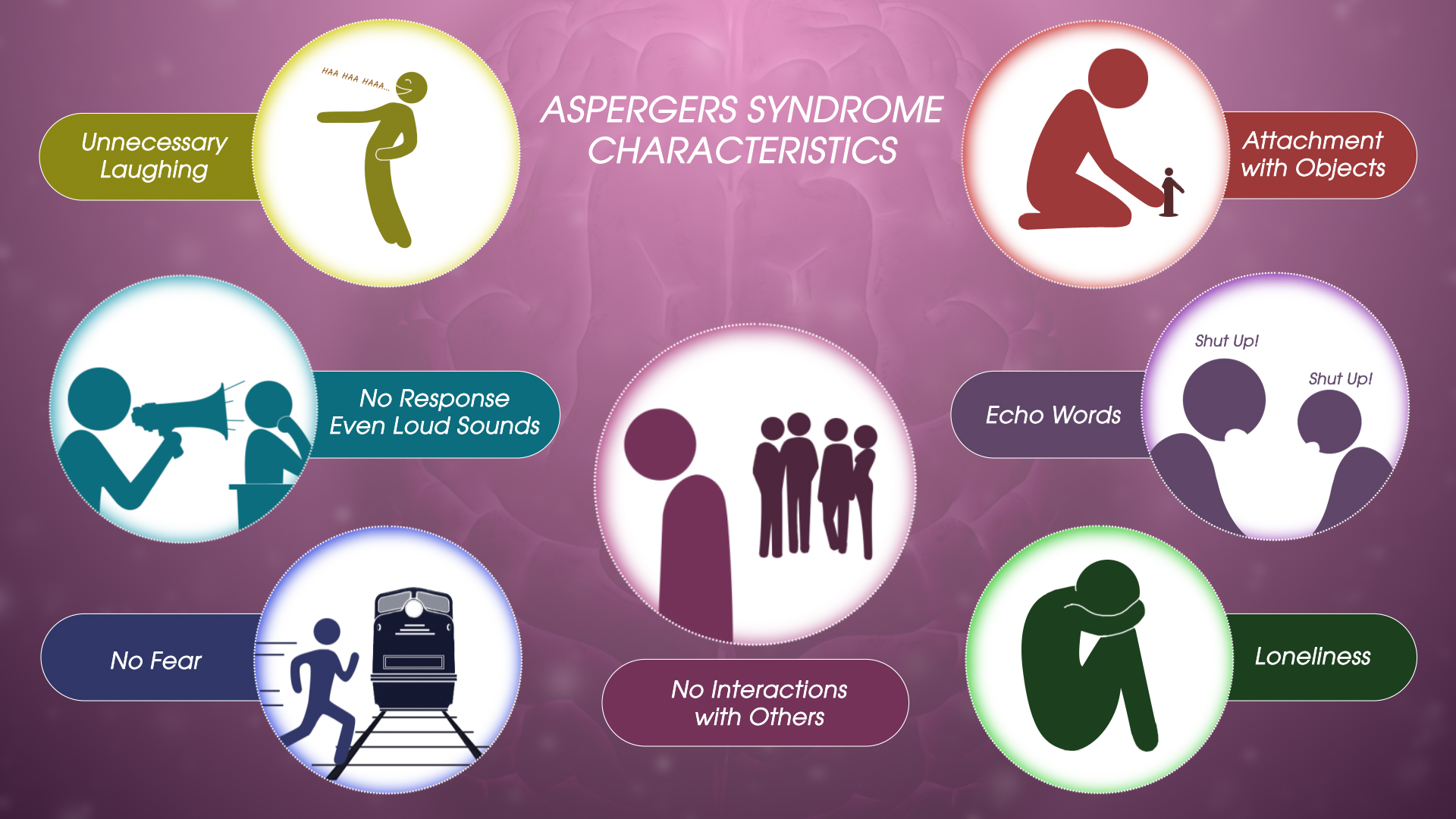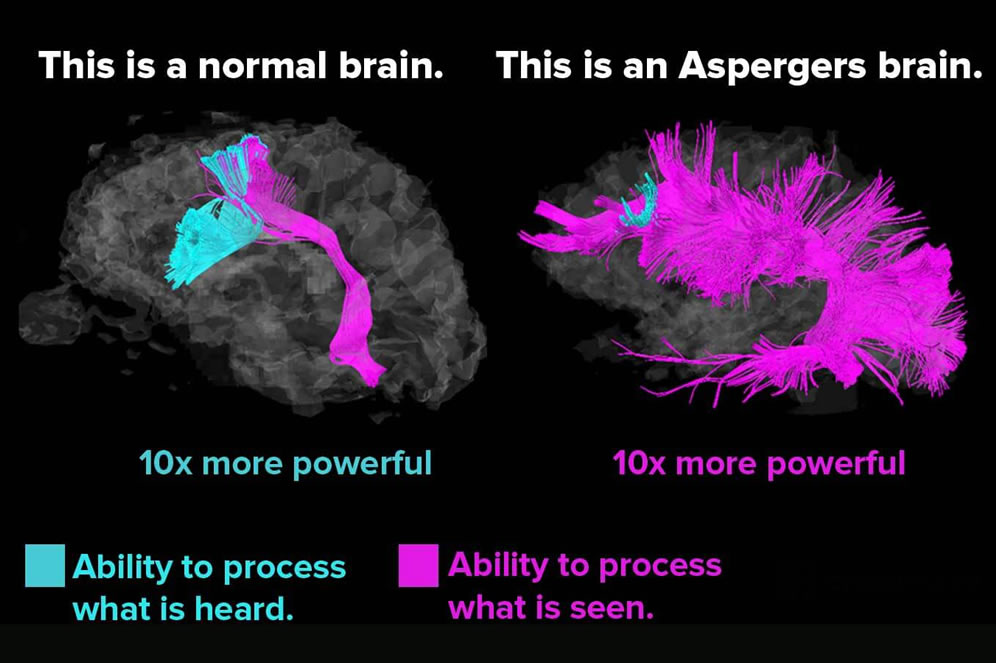
Asperger's Syndrome (Autism Spectrum Disorder)
Asperger's Syndrome (Autism Spectrum Disorder)
Asperger’s Syndrome is a milder form of autism. People with Asperger’s Syndrome have average to above-average intelligence and language development. However, they have difficulties with social communication and interaction. They may have trouble making friends and understanding social cues, such as facial expressions and body language. People with Asperger’s Syndrome may have intense interests in specific topics and engage in repetitive behaviors. Asperger syndrome is a part of a broader category of disorder which is called autism spectrum disorder. It is five times more likely to affect boys than girls.

Asperger's Syndrome Overview
The exact cause of Asperger’s is unknown, but genetic and environmental factors are believed to play a part. Some children may show the earliest symptoms of Asperger’s syndrome as early as the first few years of their life, but in most cases, they get diagnosed in their school-age years. Many children, adolescents, and young adults with Asperger syndrome are considered high-functioning due to their advanced vocabulary and grammar skills. However, they struggle with poor communication skills and difficulty employing language in social interaction.
Causes of Asperger's Syndrome
The exact cause of asperger is not known. It is largely an inherited disorder. Environmental factors also play an important role, such as problems in pregnancy and birth, toxic exposures and prenatal infections. These environmental factors may increase the severity of the underlying defect in genes.
Asperger's Syndrome Symptoms
The symptoms of Asperger’s syndrome are generally apparent after the time a child turns age 3, but may be diagnosed at a later age. Symptoms of Asperger’s syndrome vary from person to person; no two symptom presentations are the same. Some of the most common symptoms of Asperger’s syndrome include:
- Poor fine motor skills
- Poor handwriting skills
- Heightened sensitivity and overstimulation in relation to loud noises, bright lights, unusual textures, or strong tastes
- Poor coordination
- Clumsiness
- Unusual body postures and gestures
- Difficulties using gross motor skills, such as those needed for riding a bike
- Children may seek out, but have a difficult time, interacting with peers
- Excessive talking, especially about a specific topic
- Frequent one-sided conversations
- Lack of interpersonal relationship skills and instincts
- Inability to express their own feelings
- Often verbalizes internal thoughts
- Atonal, flat, lacking pitch and accent speaking style which can create challenges in understanding these children when they speak
- Appearing to lack empathy
- Inability to understand societal norms
- May not make eye contact or, conversely, may stare at others
- May not understand the concept of personal space
- Tremendous difficulties with changes or upsets in routine
- May have one or a few very select interests that they are extremely knowledgeable about
- Difficulties picking up on the subtle changes in tone, pitch, and voice that accompany regular conversation
- May be unable to understand sarcasm or jokes
- Lack of inborn social skills such as reading body language, taking turns talking, or having a conversation with others
- Poor organizational skills
- Lowered self-esteem
- Tendency toward shyness
- Depression
- Anxiety
- Moodiness
- Loneliness and social isolation
- Feelings of being “unlike” his or her peers
Treatment
A multidisciplinary approach is usually adopted for the treatment of asperger syndrome. Medicines can be prescribed to help control the symptoms of asperger syndrome but they are not sufficient to treat the condition itself usually. A number of behavioral therapies and educational interventions are often used to help people suffering from this condition. Treatment can usually improve the long term outlook for people suffering from asperger syndrome. When behavioral, educational and social support is provided, people suffering from this condition can often control the social and communication challenges they face and can lead happier and more productive lives.






